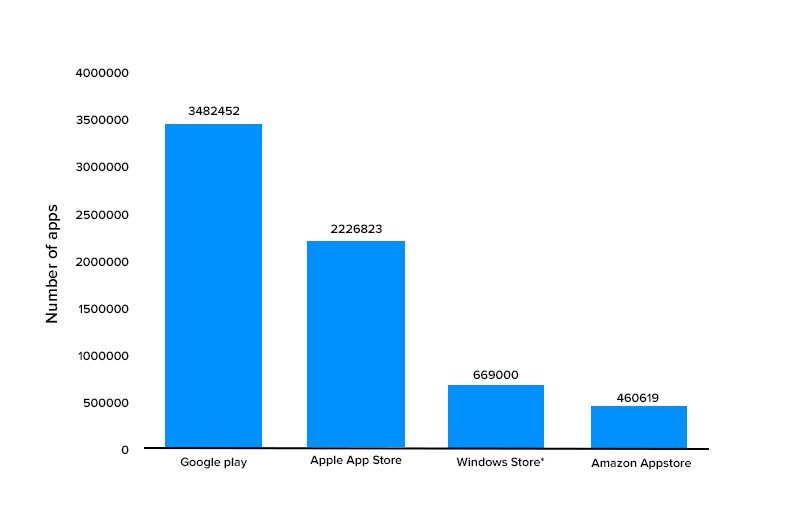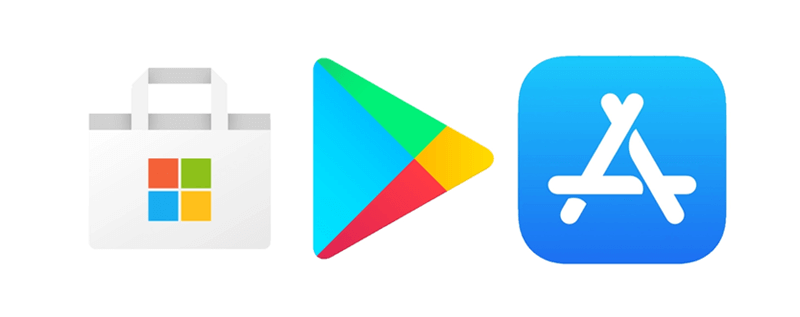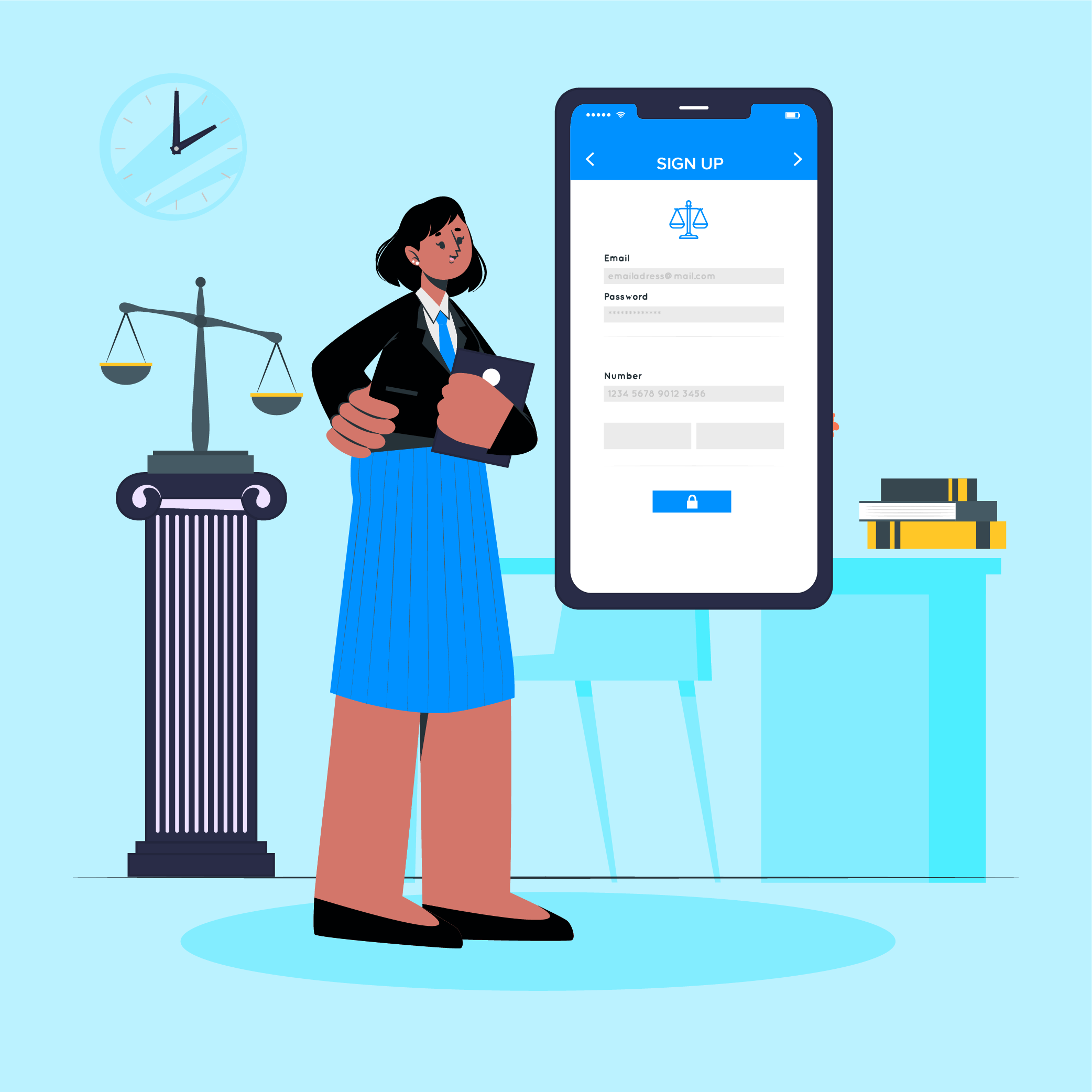Top 8 Legal Issues to Consider to Protect your App in 2021
We are living in the ‘app age’ and that means there is literally an app for everything. The advent of mobile apps have transformed the way we access goods and services. In a few taps, we can order anything and everything from the comfort of our home. As a result, since late 2016, mobile devices started outselling computers. And in the current year (2021), over 55% of internet access happens through mobile devices.
Hence, there’s no denying that app development is progressively turning into an attractive market, especially for the startups. Here are a few stats related to mobile app for your better understanding:
- As per Statista, mobile apps are expected to generate over $935 billion in revenue by 2023.
- Over 3.48 million apps are available on Google Play Store.
- Over 1.96 million apps are available for download on the Apple App Store.

- 69% of all US digital media time comes from mobile apps.
- The average smartphone owner uses 10 apps per day and 30 apps each month.
- As per a report, 49% of people open an app 11+ times each day. While 21% of millennials open an app 50+ times per day.
But despite this rising popularity in app usage and mobile app development, there are several legal and ethical issues that app developers must abide by to develop a long-lasting and profitable product. In this blog, we have listed some of the crucial legal issues for mobile apps.
What makes an app legal?
Here are a few crucial mobile app legal requirements that you must consider while developing an app:
1. Confidentiality agreements
To protect your legal app ideas from possible stealing or competition, sign a confidentiality agreement. In most app development environments, confidentiality issues may arise in a scenario where you outsource third parties. A non-disclosure agreement (NDA) is considered the most familiar way to protect your product idea. Generally, NDAs restrict information dissemination about a particular project or product. They also limit the information to the people who have signed the document. For the uninitiated, NDAs can be signed with multiple parties.
NDAs are especially useful in the following situations:
- NDAs protect sensitive information disclosed during the app development phase. (For instance, passwords, source code, or business plans)
- They protect your business from possible risks when outsourcing people who have also worked with competitors
- Keep your app a secret while under development
- Maintain confidentiality of trade secrets
2. Intellectual property rights
Intellectual property (IP) relates to all work that is original and created during the mobile app development process. During the app development process, you and your team will be creating legal app ideas, original content, designs, logo, app names, source code, etc. These all original elements are considered IP and belong to you. Your company needs to register them as trademarks, copyright, or patents to protect the app idea.
- Copyright – It protects your app’s source code, artistic or written work, and design. Your app will be safe from unauthorized copying.
- Patents – Patent protection covers certain methods, processes, and products used in app development. They are generally new and non-obvious.
- Trademarks – Trademark identifies the source of origin of goods or services. It often includes protection for things like your app’s logo, name, and slogan. Most of the app development companies register at least their app’s name as a trademark.
3. Jurisdiction
If you’re planning to launch a product overseas, make sure that a future product complies with local laws. Before marketing and distributing your product in international markets, hire a legal tech service expert to help you with all legal work. This would help you to understand the laws of other countries for efficient launch of the product.
4. Incorporate a business
You must know how you want to operate your business. You can act as a sole trader, become a partner in a partnership, or form a limited liability company. An LLC is considered a right structure as it limits your liability and protects personal assets if any problem arises.
5. App store agreements
Once the app is ready, the next step is distribution of mobile apps through app stores. Your app must comply with all app publishing requirements arising from the guidelines of Google and the guidelines of Apple. You must also check government regulations for apps before distributing them. The terms and policies put emphasis on personal data protection and address IP issues concerning your app. These platforms also reserve the right to modify their legal terms or add new clauses when necessary. Your app must comply with changes or else it will result in legal action or removal from the app store.

6. Terms of Use
Terms of Use is a legal agreement that mobile app developers enter with their app’s users. The agreement is valid automatically as soon as the user downloads the app. It states about the app, how the user must use it, what constitutes improper or unlawful use of the app and consequences of improper use. A Terms of Use agreement is crucial because it limits the possibility of legal and ethical issues for mobile apps if a user misuses your product.
7. Privacy policy
Privacy rights – specifically, the privacy rights of end-users of the app—should not be overlooked. The prime way of addressing privacy rights of the mobile app users is through a privacy policy. Your privacy policy must explain to the users how the app will store and use their data. Such policies must also clarify the rights of end-users regarding their data. They must also know how to exercise their rights for data protection.
Here are a few steps to meet Privacy Policy requirements:
- Privacy Policy must be in place from the beginning of the mobile app development process
- It must be clear and transparent to prevent app development legal issues
- Make it available as soon as the user downloads the app
- If your Privacy Policy is provided after the installation of the app, make sure to disclose it before the app processes the user’s data
8. End-user License Agreement (EULA)
The major app stores require apps on their platform to have an end-user license agreement (EULA). It is a contract between the owner of the app and the users using the app. It specifies the terms under which the end-user will use the app and identifies all permissible and non-permissible uses. The EULA will also ensure that the user isn’t misusing the app in a harmful way. Your EULA must be enforceable – this means that the app user needs to agree to the EULA. The most effective way to get user consent is use of “clickwrap agreements’’. Developers disclose them before the app is downloaded. The EULA is presented to the user, requiring them to state that they have read it and then agree to its terms by clicking on the “I Accept” button.
[Also Read: What is the Role of Technology in the Legal Sector?]
How Appinventiv ensures compliance with legal requirements for mobile app development?
At Appinventiv, we are dedicated to shield and protect the privacy of our clients and visitors. We make sure to consider all legal issues in the software development process. Here are a few steps that we take to comply with legal requirements for app development process:
- At Appinventiv, we have Privacy Policy in place for users and clients to describe how we use and process your personal data. The Privacy Policy explains what happens to any personal information that you provide to us, or that we collect from you while you visit our website.
- We disclose every practice regarding collecting, using, and protecting personal information in our Privacy Policy.
- We also encourage our clients to sign a non-disclosure agreement before discussing their app idea.
- We make sure to sign app development contracts with clients to prevent legal issues in mobile app development. The contract generally specifies the scope of work or services, time limits, fee arrangements, code ownership, etc.
Wrapping up!
As you can see, it’s important for companies to determine their legal scope and address all possible legal and ethical issues for the app development process. Follow the above-mentioned legal requirements for creating an app to minimize the legal risk and protect your intellectual property rights. You can deal with legal issues in software development efficiently with a trustable mobile application development company. There are a number of reliable mobile app development services that can minimize your liability and help your business to achieve success.
At Appinventiv, we have helped many small-scale companies, medium-sized businesses, and enterprises to understand legal issues related to their app. If you want any assistance with app development and related legal issues, you can contact us as we are the top web development company in USA.

strategies your digital product..





